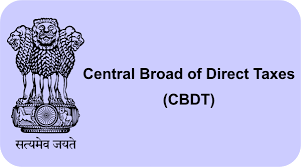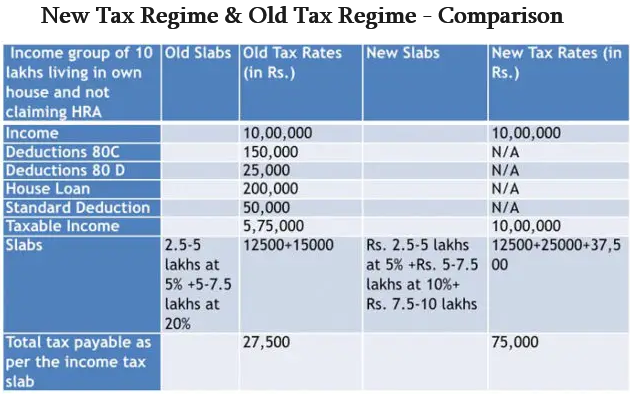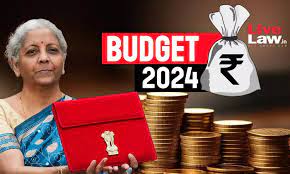 In the weekly newsletter dated January 8, 2024, Chairman Sanjay Kumar Agrawal of the Central Board of Indirect Taxes and Customs (CBIC) shared noteworthy updates.
In the weekly newsletter dated January 8, 2024, Chairman Sanjay Kumar Agrawal of the Central Board of Indirect Taxes and Customs (CBIC) shared noteworthy updates.
From the launch of CBIC’s WhatsApp channel to commendable achievements, the newsletter provides insights into the latest developments within the organization.
Here are the detailed Analysis:
==========================
- WhatsApp Channel Launch:
Chairman Agrawal introduced the recently launched CBIC India WhatsApp channel. With a presence on various social media platforms, including Twitter, Facebook, Instagram, YouTube, and Koo, CBIC aims to enhance taxpayer information and facilitation. The WhatsApp channel, a pioneering move by a government department, already boasts around 7,500 followers.
- IRS Officers Passing Out Ceremony:
The newsletter highlights the Passing Out Ceremony of the 73rd Batch of IRS (C&IT) Officers. Chairman Agrawal emphasizes the significance of knowledge, citing the academy’s motto. The trained officers, ready to serve, demonstrate espirit de corps and are prepared to administer customs and indirect taxes.
- Medals and Recognitions:
Exceptional officers are recognized during the ceremony, with medals awarded for outstanding performance during their probationary period. Notable achievements include the FM and Chairman Gold Medal, Kaushalya Narayanan Memorial Gold Medal, Director General Gold Medal, and N. K. Upadhyay Memorial Gold Medal.
- Vigilance Achievements:
CBIC achieved a record number of disposals of vigilance cases in 2023, with 524 disciplinary proceedings disposed of. The Chairman commends the collective effort and expresses confidence in sustaining this momentum for the upcoming year, aiming for new heights in vigilance administration.
5. Relief Measures for Rain-Affected Areas:
Due to heavy rains in Tamil Nadu, CBIC approved the extension of due dates for filing GSTR-3B and Annual Return. This decision aims to provide relief to taxpayers in rain-affected areas.
- Customs Success Story:
The newsletter highlights a successful case booked by Trichy Customs (Preventive) Commissionerate, showcasing the vigilance and teamwork of officers. A specific intelligence-led operation led to the recovery of 7.70 kgs of gold worth Rs. 4.85 Crore.
Conclusion: Chairman Sanjay Kumar Agrawal’s weekly newsletter encapsulates the dynamism of CBIC, showcasing achievements, recognitions, and significant initiatives.
From technological advancements like the WhatsApp channel launch to the vigilance administration accomplishments, the newsletter underscores CBIC’s commitment to efficiency, transparency, and serving the public interest.
Stay tuned for more updates and insights in the weeks to come, as CBIC continues its journey towards excellence in customs and indirect taxes administration.
WhatsApp Channel
Read More
Government of India
Ministry of Finance
Department of Revenue Central Board of Indirect Taxes & Customs
Sanjay Kumar Agrawal, Chairman
DO No. 02/News Letter/CH(IC)/2024 Dated: 08th January, 2024
Dear Colleague, I am pleased to inform that the Central Board of Indirect Taxes and Customs (CBIC) has recently launched its WhatsApp channel – ‘CBIC India’. This initiative would greatly support our continued endeavour for taxpayers’ information and facilitation. The CBIC is already actively engaging with various stakeholders through its own website and social media accounts on popular platforms such as X (previously known as ‘Twitter), Facebook, Instagram, YouTube, and Koo. Since WhatsApp is one of the most popular social media platforms in India, the presence of CBIC on WhatsApp channel will help in dissemination of information to a much larger audience. It is also worth noting that CBIC is one of the first Government Departments to establish its presence on WhatsApp Channels! As on date, there are about 7,500 followers of the CBIC Channel. I urge all of you to follow the channel for GST, Customs and Indirect tax related information. Last week, the Passing Out Ceremony of the 73rd Batch of IRS (C&IT) Officers took place in NACIN Palasamudram Campus. The parade, comprising of 26 Officer Trainees including 9 lady officers, showcased the culmination of rigorous training, marking the officers’ readiness to take on their roles in public service. These young officers, confidently displaying the spirit of espirit de corps in their kadam taal, will be at the forefront of administering the Customs and Indirect taxes in the country.
At this juncture, I would remind the officers of the motto of the academy. Knowledge is the Supreme Power as this phrase holds significant importance for the newly trained officers. In the complex and dynamic field of customs and indirect taxes, staying abreast of changing regulations, trade practices, and global economic trends is crucial. A well-informed officer is better equipped to make sound decisions and contribute positively to the overall efficiency and integrity of the Department and uphold the principles of fairness and justice in their responsibilities.
During the event, medals were also bestowed upon the officers who demonstrated exceptional performance during their probationary period. My heartfelt congratulations to Shri Kankanala Anil Kumar for earning the FM and Chairman Gold Medal, Ms. Tanvi Soni for the Kaushalya Narayanan Memorial Gold Medal, Ms. Pooja Ashok Kadam for the Director General Gold Medal, and Ms. Selvavinodhini V for the N. K. Upadhyay Memorial Gold Medal. It gives me immense pleasure to share that in 2023, CBIC was able to achieve highest number of disposals of vigilance cases. In 2023, we collectively disposed 524 disciplinary proceedings, improving on our previous all-time disposal record of 401 Final orders which were issued in 2022, by a healthy margin of 30%. In the month of December 2023 alone, CBIC collectively issued 87 Final orders – a record disposal. I convey my sincere appreciation for Pr DGoV, her team and the Disciplinary authorities in the field for this outstanding accomplishment. With these numbers, I am confident that this momentum and vigour displayed by you will continue this year as well so that CBIC achieves new heights in the field of vigilance administration. Due to heavy rains over several districts of Tamil Nadu last month, normal functioning of the rain affected areas was severely disrupted. Recognizing the need to provide relief to the taxpayers in these areas, the GST Implementation Committee (GIC) approved the extension of due dates for filing GSTR-3B for the month of November 2023 as well as Annual Return for Financial Year 2022-23. Accordingly, the Notification No. 01/2024-Central Tax and 02/2024-Central Tax were issued by the CBIC last week. I hope this measure will provide the much needed relief to the taxpayers in these districts.
I would like to highlight an interesting case booked by the officers of Trichy Customs (Preventive) Commissionerate. On Specific intelligence, the officers of Central Intelligence Unit, Trichy along with officers of Customs Preventive Unit, Rameswaram intercepted two persons moving in bike near Thangachimadam Dargah Bus stop, Rameswaram. On seeing the officers, the bikers fled the scene leaving the bike at the spot. On thorough search and examination of the bike, gold weighing 7.70 Kgs valued at Rs. 4.85 Crore was recovered from the abandoned bike. Kudos to the team effort and vigilance displayed by the officers!
Till next week!
Yours sincerely,
(Sanjay Kumar Agarwal)








